UnReal’s breakout star on reality TV, playing gay characters and following his instincts…
By Erica Cupido
Speaking with Canadian actor Jeffrey Bowyer-Chapman is like a spiritual lesson and motivational seminar all in one. Throughout our conversation, the star of Lifetime Canada’s UnReal, 33, seems to be just as driven to find roles that resonate with him, as he is confident that the right opportunities will come his way. Growing up in the small town of Rimbey, Alta., where he would frequently perform for his family, Bowyer-Chapman recalls, “[They] would tell me, ‘We’re going to send you to Hollywood.’ I figured if it was a place filled with other little weirdos like me, then I belonged there.”
They certainly had the right instinct. Today, Bowyer-Chapman is based in L.A., has been described as one of Canada’s top rising stars by The Hollywood Reporter, and has worked alongside Constance Zimmer, Robert DeNiro and Zac Efron. For three seasons, we’ve watched him play ambitious producer Jay on UnReal, the dark, Emmy-nominated drama about a reality TV dating show called Everlasting. Its latest season changed the formula by featuring a female ‘suitress’ and her 25 potential matches, who also provided Jay with romantic options of his own. With a fourth season already wrapped, he says that seeing the show return to its feminist roots in the third season has made him fall in love with his day job all over again.
When he’s not on set, Bowyer-Chapman has appeared as a guest judge on RuPaul’s Drag Race and RuPaul’s Drag Race: All Stars. He also launched his own podcast this year—JBC Presents: Conversations with Others—on which he chats about the experience of otherness with friends like Janet Mock, Aubrey Plaza, Jussie Smollett and more. With the smooth-voiced actor as host, their discussions often turn to intentions, self-care and how his guests have learned to embrace their individuality.
Whether we’re talking about his podcast or his early experiences as a budding model-turned-actor, there seems to be a recurring theme throughout our conversation. Bowyer-Chapman sums it up when asked whether there’s a philosophy behind his Instagram of all things (prompted by the fact that he seems to be positively beaming in every single shot). “Spread love, it’s the Brooklyn way!” he says. “There’s no real intention, other than the same one behind the podcast—to celebrate yourself and spread a message of love.” Spoken like a true spiritual guru.
You begin every episode of your podcast by asking your guest, ‘Who are you?’ So let’s start there.
I am becoming more and more of myself with each passing day. But who am I? I feel like such a jerk now for putting all of my guests on the spot! I’m a human being trying to figure it out, trying to navigate my way through this world in the best way I know how, and learning lessons along the way.
When did you realize that acting could align with activism, or provide opportunities to talk about things that matter to you?
There wasn’t a moment of realization. It was a slow, steady progression. People thought it was interesting or different that I was an openly gay man playing queer characters. It’s just who I am and the types of stories that I’m drawn to. As people have become more interested in the work that I’m doing, there have been more opportunities to talk about my own views, perspective and the LGBTQ community. Some people call that activism and I will gladly wear that title.
Were you always explicit about wanting to play gay characters?
I didn’t come out to my agent or my family. They’ve always known that I’m gay. I was 21 years old when I did my first movie, so from that point forward I was very clear about the types of characters I wanted to play, and the types of projects I wanted to align myself with.
Was it challenging to find roles that you connected with early in your career?
It was 2005, 2006, and there was far less content being created for the LGBTQ community. When I would say that I wanted to play gay characters, it seemed like a pretty lofty goal. But it was something that was important to me. It took many years for me to surround myself with a group of people who not only saw my vision, but shared it, supported it and helped clear a path for me to live my life and do my job in a way that felt right for me.
Was it difficult for you to set that precedent with your team as a young actor?
For the most part, I feel that it’s more painful to hold in my thoughts, opinions and emotions than to just share them with the world. But I also have to recognize that there is courage in being honest, because you put yourself in a position where you will be criticized, judged or disagreed with. That’s a vulnerable place to be in. So far, the only regrets I have had are when I’ve had instincts that I didn’t follow.
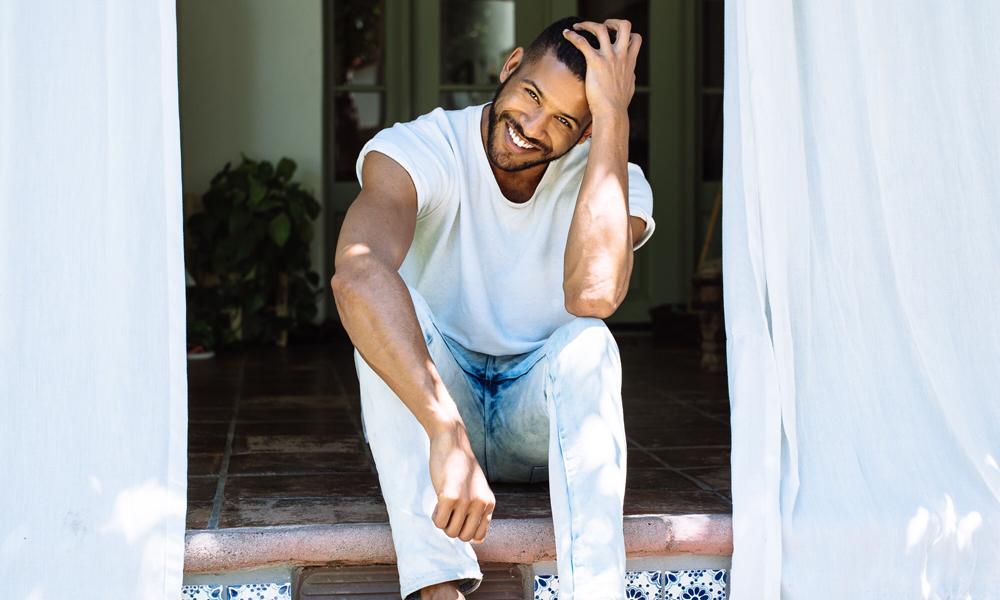
Let’s talk about UnReal. Your character, Jay, was initially a womanizer before the creators rewrote him as a gay man. Having played the original version, how did you feel when they told you he was being rewritten with you in mind?
I was beyond emotional. I was in my apartment in Brooklyn when [executive producer] Marti Noxon called me and told me that she wanted to rewrite the character after me and make him an openly gay character. To have her accept and value who I am as a human being enough to shape a character around me, was just an extraordinary dream come true. It was validation for me to continue following my instincts, because that is what led me to be myself behind the scenes.
We saw Jay finally have opportunities to hook up in Season 3, since the season revolved around Everlasting’s first ‘suitress’ and her 25 male contestants. Were you happy to delve into that side of your character?
I felt that it was necessary to explore that part of Jay’s life. As a fully fleshed out human being, he’s of course going to be having romance, love and sex. To edit that out wouldn’t have made sense. Having so many men on the show, it made sense that Jay would be able to explore his sexuality and do it in a way that [worked] for the story.
We also got to see him trying to get his own show off the ground. He pitches series that would encourage the audience to reevaluate their ideas about gender and expression. Do you think that’s lacking in reality TV?
You know, I think that [his ideas] exist on different platforms, and elements of them exist on different shows, but not combined together as a celebration of otherness in a way that he wants it represented. I think the show could be about gay culture, Black culture, queer culture, dance culture, and combine all of those things in a way that makes it palatable, educational and entertaining along the way.
The show films in Vancouver, but you now call L.A. home. Is it strange to be a Canadian in the US right now?
I think it’s always been strange to be a Canadian living in the US The countries are geographically so close but couldn’t be more different politically, historically different. The very foundation on which this country was built is that of the violence and oppression of slavery. That just isn’t the case with Canada. I feel like so much of the energy that [the US] was founded with has seeped into the culture when it comes to patriarchy, misogyny, racism, homophobia and class systems. It’s something that I’m aware of on a daily basis. It makes me very blessed to know that I can always call Canada home—and I can always come back.
Do you think Canadians still have a lot of work to do in terms of advocating on behalf of the LGBTQ community?
I do. I think there’s a level of complacency in Canada that exists around LGBTQ rights. I think there are many strides to be made socially and culturally. Conversations are not really had in smaller communities around queerness and gayness. There needs to be an education put in place for people who may not have access or exposure to queer culture. Lack of exposure leads to ignorance, and ignorance leads to no good.
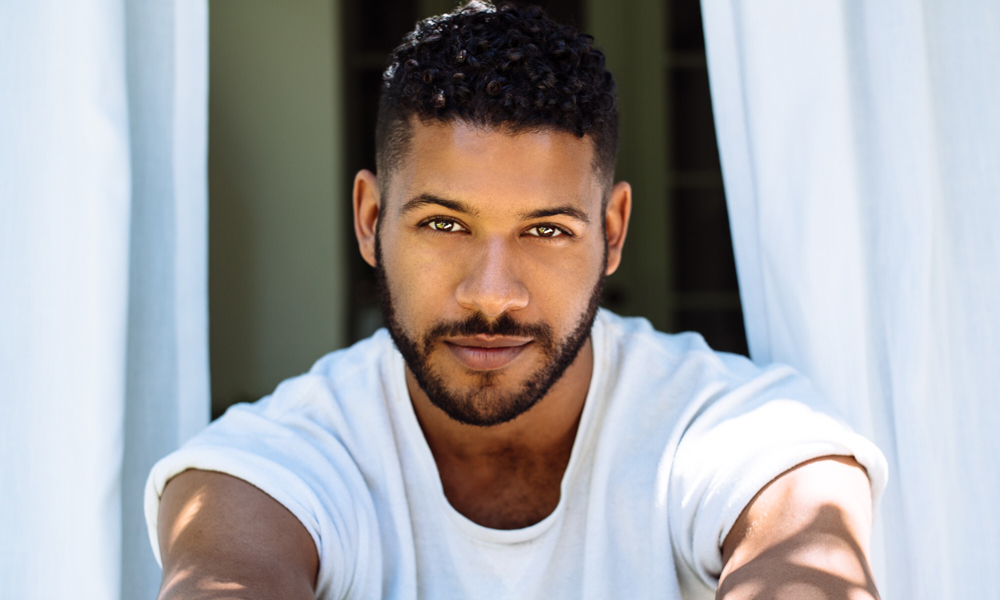
Let’s shift gears to talk about your time as a guest judge on RuPaul’s Drag Race. What’s something we don’t know about the way the judging panel works?
That it is a long day of shooting. Those queens are up on that stage for up to six hours in full makeup and full wardrobe! I give it up to them for that. If you can stand in heels for six hours and still look that gorgeous—you’re doing something right.
How did RuPaul help get your podcast, Conversations with Others, started?
Well, RuPaul’s What’s the Tee? is one of my favourite podcasts. I just love the level of spirituality, comedy, irreverence and deep, soulful conversation that happens over the course of every episode. After recording my first episode of What’s the Tee?, the producers pulled me aside and asked me if I wanted to do my own show. I just had to figure out the type of show I like listening to. I came back to them and presented them with Conversations with Others.
What does otherness mean to you?
The very definition of otherness is any of those who fall outside the status quo. Essentially straight, white men are the status quo and everybody else falls outside of it. To have the opportunity to have discussions with people whose stories aren’t necessarily told, and to celebrate the things about them that make them others, is the greatest blessing and most beautiful opportunity. I love having those conversations.
Were there any episodes that were especially enlightening for you?
The one episode I did with someone who isn’t a celebrity was one of my favourites. Sharon Pink is one of my best friends. She is a queer social worker, counsellor and witch. She’s amazing. She practises witchcraft, reads tarot cards and is a really beautiful, spiritual Earth child. She’s also a huge advocate and representative in the queer community. She works with sex workers in Vancouver and is a counsellor for women who have experienced sexual trauma. She inspired me to be me.
When did you first become friends?
I met her when I was in my late teens, early 20s, and she brought me to my first drag king show and my first drag queen show. She really destigmatized a lot of issues around sexuality, queerness and the LGBTQ community that had been said to me for so many years. She really broadened my perspective in many ways. I wouldn’t be who I am if it weren’t for her.
You’ve already wrapped filming on Unreal’s forthcoming fourth season, and have finished recording the first season of your podcast. What’s next?
I guess we will see! I’m going to take a minute to get back to myself and go on a European vacation this summer with my partner, Andrew [celebrity hairstylist Andrew Fitzsimons]. I am, at this point, not willing to throw everything against the wall and see what sticks. I’m very intentional in the moves that I make in my personal and professional life. Whatever it is that vibes with my frequency next, will be whatever that is.
—
ERICA CUPIDO is a pop culture-obsessed freelance writer and editor based in Toronto. Her work has appeared in Flare, Hello! Canada and more. Find out what she’s watching, reading and listening to by following @ericacupido_ on social media.

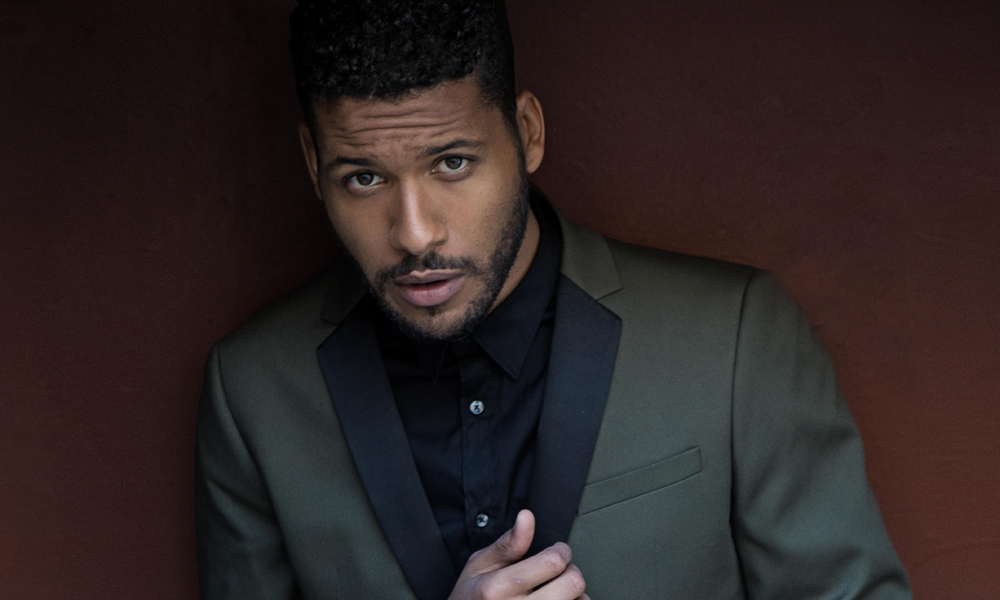
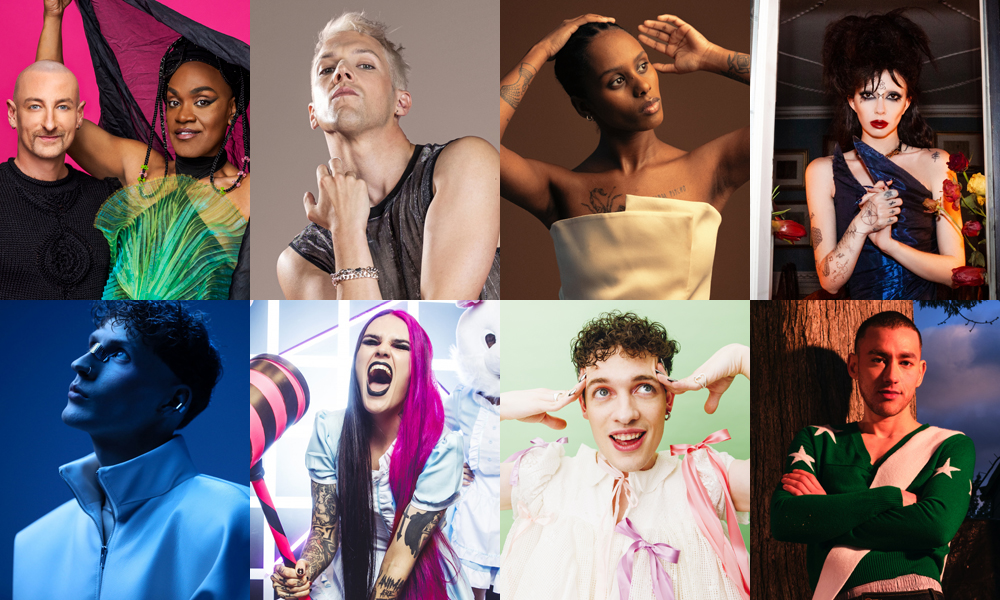
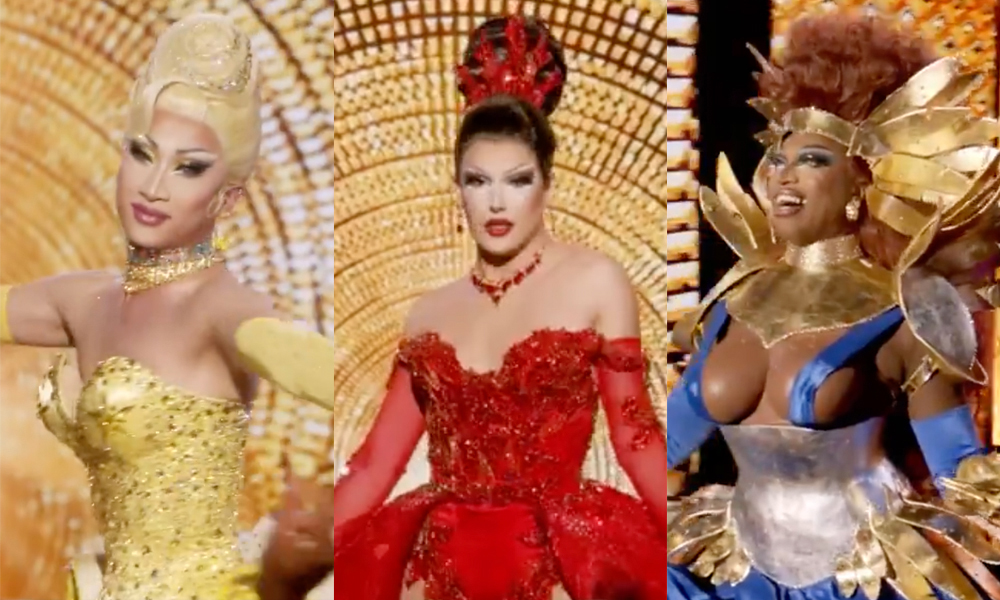
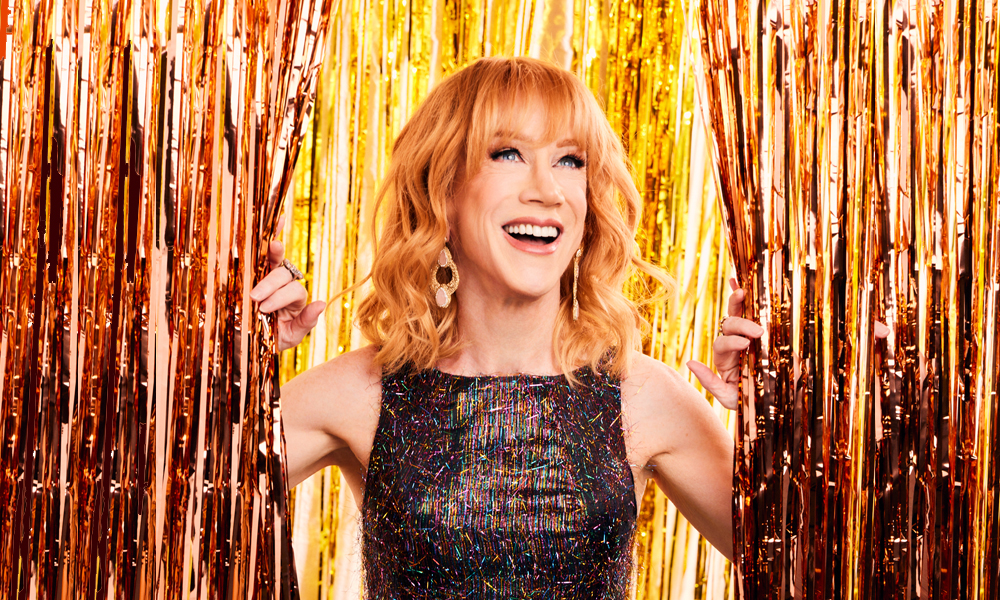

Comments
2 Comments